
Until the mid1800s mission grapes were the primary wine-making grape in California. As time progressed, mission grapes were used for brandy, table wine and Angelica, which was a fortified wine. A few 19th-century wine makers experimented with brandy.
Jacob Beringer left his home in Mainz, Germany, in 1868 to start a new life in the U.S. He was enticed by his brother, Frederick, who had sailed to New York five years earlier and constantly wrote home about the grand opportunities in the vast new world. Jacob had enjoyed working in wine cellars in Germany when he was younger and had heard the warm, sunny climate of California was ideal for growing wine grapes. So, in 1870 he traveled West by train, first to San Francisco and then on to Napa Valley. Upon his arrival he discovered rocky, well-drained soils similar to those in his native Rhine Valley. In 1875, the brothers bought 215 acres that had a 28-acre vineyard already planted with white Riesling, Chappellet and grapes to blend Cabernet Sauvignon. In 1876 they founded the Beringer Brothers Winery and crushed 40,000 gallons of wine.
Diese Geschichte stammt aus der May 2023-Ausgabe von True West.
Starten Sie Ihre 7-tägige kostenlose Testversion von Magzter GOLD, um auf Tausende kuratierte Premium-Storys sowie über 8.000 Zeitschriften und Zeitungen zuzugreifen.
Bereits Abonnent ? Anmelden
Diese Geschichte stammt aus der May 2023-Ausgabe von True West.
Starten Sie Ihre 7-tägige kostenlose Testversion von Magzter GOLD, um auf Tausende kuratierte Premium-Storys sowie über 8.000 Zeitschriften und Zeitungen zuzugreifen.
Bereits Abonnent? Anmelden
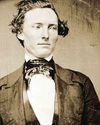
FIREARMS COLT WALKER 47
THE LEGENDARY HANDGUN THAT REALLY WON THE WEST
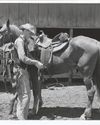
HERITAGE TRAVE
THE AMERICAN WEST IN ALL ITS GLORY OUR ANNUAL FAVORITES LIST CELEBRATES DESTINATIONS ACROSS THE WESTERN UNITED STATES.
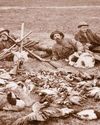
Wild Turkey, and Not the Drinkin' Kind
The actual bird was a favorite of pioneers.
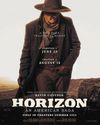
THE PASSION PROJECTS OF THE MODERN WESTERN
A YEAR OF UNDERRATED EXCELLENCE
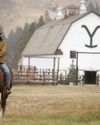
WESTERN BOOKS THEN AND NOW
THE STATE OF WESTERN HISTORY AND FICTION PUBLISHING IN 2024 IS ONE OF GRIT AND DETERMINATION.
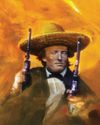
SAMUEL WALKER VALIANT WARRIOR
While a prisoner at the castle of Perote, Walker was put to work raising a flagpole. At the bottom of the hole, Walker placed a Yankee dime, vowing to someday come back and retrieve it, at the same time exacting revenge on his Mexican captors. In the summer of 1847, when Walker's mounted riflemen returned and routed Santa Anna's guerillas, the young captain kept his promise and got his dime back.
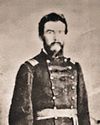
THE BATTLE OF CENTRALIA
ON September 27, 1864, Bloody Bill Anderson and about 80 men took over the small railroad village of Centralia, looting stores and discovering a barrel of whiskey that they hauled out into the street. Wild enough when sober, they soon were roaring drunk.
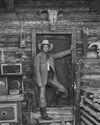
THE MAN WHO SHOOTS THE WEST
Jay Dusard is a living American photographer who has made Arizona his home for over 60 years, seeing it first in 1960 on a visit, moving here for good in 1963.
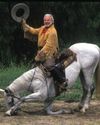
A TRUE WESTERNER INDEED PHIL SPANGENBERGER 1940-2024
Spangenberger had Nevada trained to bow by the legendary horse trainer, Glenn Randall, who trained Roy Rogers' Trigger, Gene Autry's Champion, Rex Allen's Koko and the Ben Hur chariot horses, among other great equines.

Where Did the Loot Go? - This is one of those find the money stories. And it's one that has attracted treasure hunters for more than 150 years.
Whatever happened to the $97,000 from the Reno Gang's last heist? Up to a dozen members of the Reno Gang stopped a Jeffersonville, Madison and Indianapolis train at a watering station in southern Indiana. The outlaws had prior intelligence about its main load: express car safes held about $97,000 in government bonds and notes. In the process of the job, one of the crew was killed and two others hurt. The gang made a clean getaway with the loot.